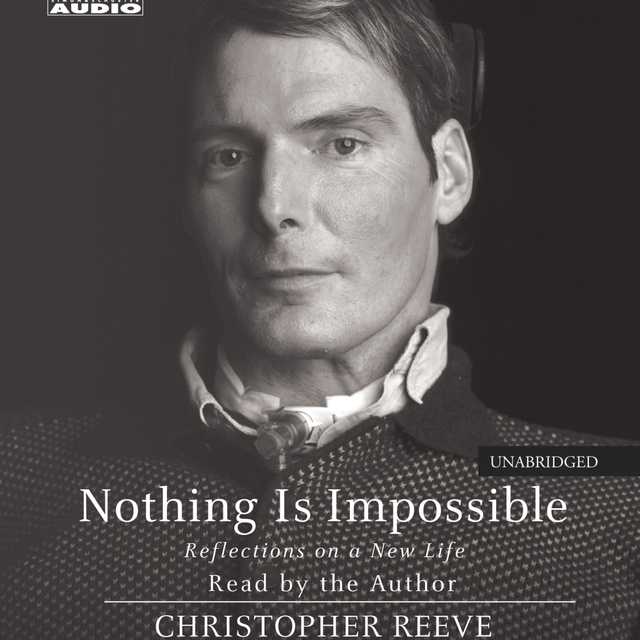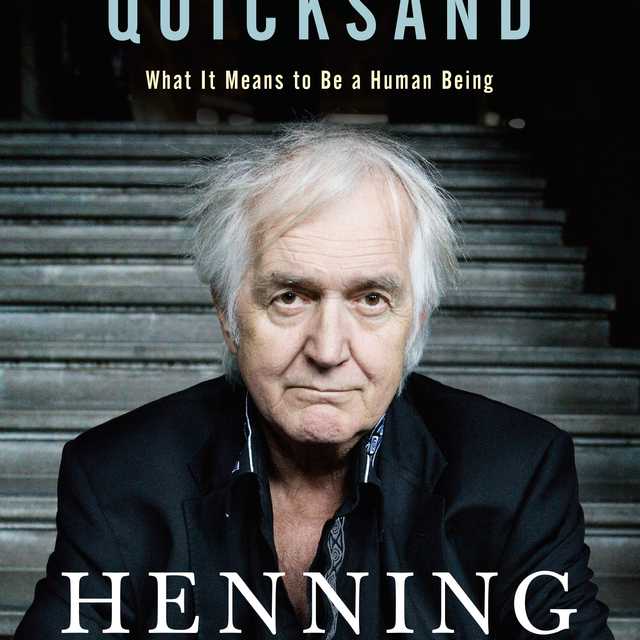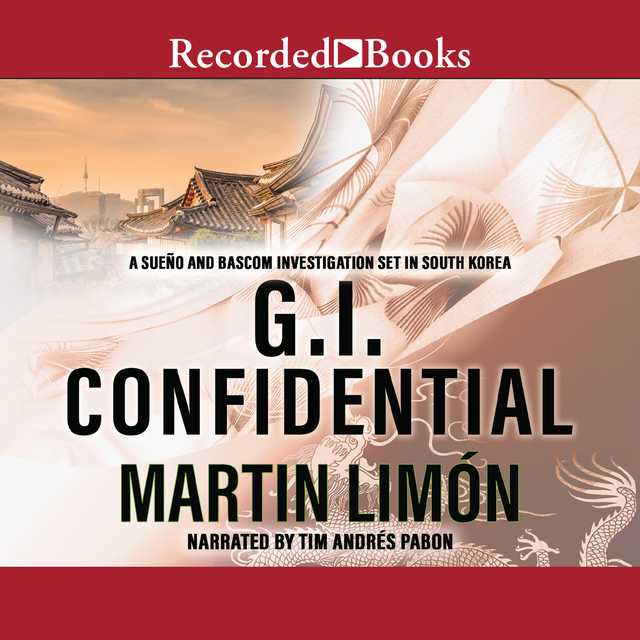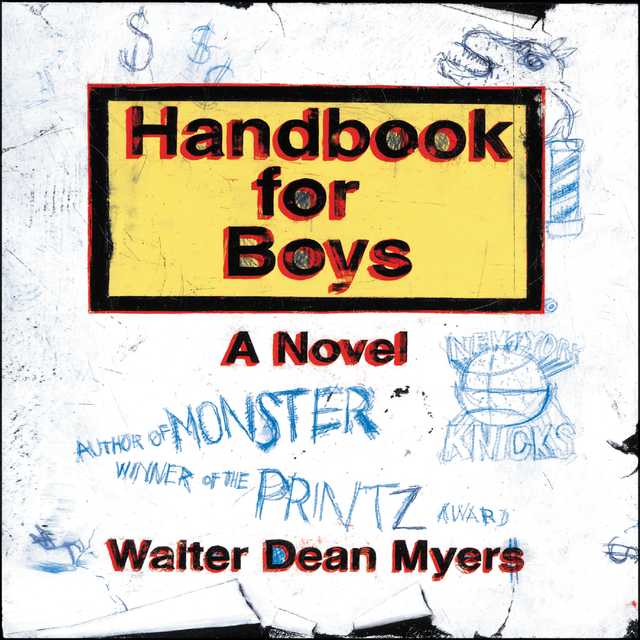Measure for Measure Audiobook Summary
When a young woman is offered the choice ofsaving a man’s life at the price of her own chastity,what should she do?
The political and moral corruption of Vienna has driven Duke Vincentio into hiding while his deputy governor, Angelo is left to revive the old discipline of civic authority. Angelos First act is to imprison Claudio, a young nobleman who has gotten his betrothed, Juliet, with child. Under the old laws, this is punishable by death. Angelo next offers Isabella, sister to Claudio and a beautiful young novice about to take her vows, the chance to save her brother’s life at the price of her own chastity. Disguised as a friar, the duke returns to manipulate the players and deliver justice in one or Shakespeare’s darkest plays concerned with the nature of justice and morality.
Other Top Audiobooks
Measure for Measure Audiobook Narrator
Full Cast is the narrator of Measure for Measure audiobook that was written by William Shakespeare
About the Author(s) of Measure for Measure
William Shakespeare is the author of Measure for Measure
More From the Same
- Author : William Shakespeare
- The Tragedy of Hamlet, Prince of Denmark
- Henry the Fourth
- The Tempest
- Julius Caesar
- Richard II
- Publisher : Caedmon
- Dubliners
- Julius Caesar
- The Two Gentlemen of Verona
- The Tempest
- Measure for Measure
Measure for Measure Full Details
| Narrator | Full Cast |
| Length | 2 hours 28 minutes |
| Author | William Shakespeare |
| Category | |
| Publisher | Caedmon |
| Release date | December 27, 2003 |
| ISBN | 9780060743154 |
Additional info
The publisher of the Measure for Measure is Caedmon. The imprint is Caedmon. It is supplied by Caedmon. The ISBN-13 is 9780060743154.
Global Availability
This book is only available in the United States.
Goodreads Reviews
Bill
February 06, 2020
Why is it that I love the universe of this "dark" comedy so much, and why does it strike me as not really being so "dark" after all? Could it be because it is presided over by a "god"--the young Duke--who is priggish, diffident and comically vain (when his reputation is attacked by Lucio), and yet is unfailingly just and honorably susceptible to the attractions of female goodness and beauty? Is it because the "villain"--Angelo--is so pathetic and small that one never seriously expects he will win? Or is it because this world is--in spite of all its lust and hypocrisy--an absurd, surprisingly malleable universe in which even a base rogue like Barnadine can simply refuse to be executed, and then be allowed to survive? All of these contribute to my great love for the play, but above all, I admire the character of Isabella, who is virtuous and brave and filled with mercy even for the vile hypocrite who wronged her. She leaves me with the feeling that--grubby and fallen though it may be--this is a world worth living for.
Ahmad
April 19, 2022
Measure for Measure, William ShakespeareMeasure for Measure is a play by William Shakespeare, believed to have been written in 1603 or 1604. The play's main themes include justice, "morality and mercy in Vienna," and the dichotomy between corruption and purity: "some rise by sin, and some by virtue fall." Mercy and virtue prevail, as the play does not end tragically, with virtues such as compassion and forgiveness being exercised at the end of the production. While the play focuses on justice overall, the final scene illustrates that Shakespeare intended for moral justice to temper strict civil justice: a number of the characters receive understanding and leniency, instead of the harsh punishment to which they, according to the law, could have been sentenced.عنوانهای چاپ شده در ایران: «چشم در مقابل چشم»؛ «حکم در برابر حکم»؛ «قیاس برای قیاس»؛ نویسنده: ویلیام شکسپیر؛ تاریخ نخستین خوانش: روز شانزدهم ماه سپتامبر سال2017میلادیعنوان: چشم در مقابل چشم؛ نویسنده: ویلیام شکسپیر؛ موضوع: نمایشنامه های نویسندگان بریتانیا - سده17معنوان: حکم در برابر حکم (نمایشنامه)؛ ویلیام شکسپیر؛ مترجم: علیرضا مهدیپور؛ تهران: نشر چشمه، سال1385؛ در147ص؛ شابک9786002295149؛ موضوع: نمایشنامه های نویسندگان بریتانیا - سده17معنوان: العین بالعین؛ تالیف ولیم شکسپیر؛ ترجمه زاخر غبریال؛ مراجعه عادل سلامه؛ تقدیم ح.و لیقر؛ کویت، سال1350؛ در358ص؛ قیاس برای قیاس (حکم در برابر حکم) نمایشنامه ای کمدی اثر «ویلیام شکسپیر» است؛ که در حدود سالهای1603میلادی تا سال1604میلادی؛ نگاشته شده است؛ مآخذ اصلی، که تغییرات فراوانی در آن داده شده، نمایشنامه «پروموس و کاساندرا» اثر «جرج وتستون»، و همچنین رمان کوتاه دیگری به نام «انحرافات اجتماعی» از همان نویسنده است؛ هر دوی این کتابها هم بر اساس داستانی از کلیات «هکاتومیتی» اثر «جرالدی سینتیو»، نویسنده ی ایتالیا است؛ تغییر اصلی در نمایشنامه «شکسپیر»، آفرینش نقش «ماریانا» است، که الگوهای موازی نمایشی ویژه ای بنا میکند؛ و همچنین استفاده از عنصر «عروس جانشین» در نمایشنامه است، که در داستانهای مردمی دوران «ملکه الیزابت» رسم بوده، و پیش از این توسط «شکسپیر» در نمایشنامه «هرچه عاقبتش خیر است، خوب است» نیز به کار گرفته شده استچکیده: (در زمان حکومت «دوک وینچنتو»، در شهر «وین» به دلیل اهمال در اجرای قانون، بی نظمی در همه جا رخنه میکند؛ پس از آنکه اوضاع بیشتر دچار هرج و مرج میشود، دوک حاکم مهربان و نرمدل تصمیم میگیرد، مدتی شهر را ترک کند، و به قصر ییلاقی خویش در «لهستان» برود، و زمام امور را در دست دو تن از مردان بزرگ خود بگذارد: یکی قائم مقام خود، «آنجلو»، که دارای نامی بیخدشه و به سختگیری نام آور است؛ و دیگری «اسکالوس» که قانوندانی خردمند است؛ به این امید که این دو بتوانند اصلاحات اخلاقی و اجتماعی لازم را به تثبیت برسانند؛ نخستین قانونی که قائم مقام دوک با مشورت و صحه ی «اسکالوس» خردمند، برای اصلاحات اخلاقی و اجتماعی تعیین میکند، قانون مجازات اعدام برای زنا و فسق و فجور است؛ اولین قربانی نیز، که برای نمونه متهم و دستگیر میشود، «کلادیو» است؛ نجیبزاده ای جوان، و از خانواده ی سرشناس شهر، که با «قراردادی واقعی» با دختری به نام «ژولیت» همبستر شده، و او را بچه دار کرده بود؛ شایع میشود که «کلادیو» و «ژولیت» عاشق و معشوق هم بوده اند، و طفلکها قصد داشته اند، با هم ازدواج کنند؛ فقط خانواده هایشان دربارهٔ برخی از مسائل جهیزیه و غیره مذاکرات و تصمیم گیری میکردند؛ در این گیرودار شخص دوک نیز که به نحوه ی کار دولت و وضع زندگی مردم علاقمند است به جای مسافرت به «لهستان»، در واقع پنهانی و با لباس مبدل در شهر مانده است، تا بر قانونگذاری و مدیریت قائم مقام خود نظارت کند…؛ این نمایش در پنج پرده تدوین شده و دارای هجده شخصیت، و تعدادی سیاهی لشکر است؛ شخصیتهای اصلی عبارت اند از: «وینچنتو: دوک مهربان و مثلاً فیلسوف منش وین، نجیبزادهای برای تمام فصول»؛ «آنجلو: لرد نیابت مقام حکومت در غیاب دوک وینچنتو، مقدس نمای خشک؛ نقطه مقابل و جلوه دهنده وینچنتو»؛ «کلادیو: نجیبزادهای جوان اهل وین»؛ «ایزابلا: خواهر زیبای کلادیو و در آرزوی ورود به دیر راهبان»؛ «ماریانا: تکه زمینی آسیب دیده؛ نامزد رهاشده و رقتانگیز آنجلو (وقتی جهیزیهاش رفت، شوهرش رفت)»؛ «ژولیت: نامزد کلادیو، افتادن در مسیر پر از خطاهای جوانی کارنامه حیثیت زندگی او را خدشهدار کرده بود»؛ «اسکالوس: مشاوری عاقل و سالخورده»؛ «واریوس»؛ «رئیس زندان شهر وین»؛ «البو»؛ «سینیوریتا اوردان»؛ «دلقکی به نام پومپی»؛ «لوسیو»؛ «فراث»؛ «توماس»؛ «پیتر»؛ «فرانچسکا»؛ «ابهورسون»؛ «لردها، افسران، قاضی، نگهبانان و خدمتکاران»)؛ تاریخ بهنگام رسانی 27/03/1399هجری خورشیدی؛ 30/01/1401هجری خورشیدی؛ ا. شربیانی
Sean Barrs
February 22, 2016
I struggled with this, big time. But, when I read it for a second time I began to see how it all fit together. Then I went for a third attempt, and saw something else entirely. There are always different layers of meaning in Shakespeare’s work, and it’s always quite hard to make a solid interpretation. Someone out there will argue against what you are saying, and rightly so because who is to say where the true meaning of a piece of literature is? Not me, that’s for sure, all I can do is try to form my own lasting impression of a work. And the impression this formed on me was quite solid, to my mind. The evidence resides in the title of the play and its origins. Measure for Measure implies that what you give, you take back. If you exact a judgement or a sense of justice then you, too, are susceptible to that same force. Indeed, this quote from the bible evidently inspired this remarkable play:"Judge not, that ye be not judged. For with that judgment ye judge, ye shall be judged: and with what measure you meet, it shall be measured unto you again." (Matthew Chapter 7: Verse2) Angelo is given the Duke of Vienna’s political powers whilst he supposedly goes on holiday to Poland. He immediately attempts to restore order to the city. But, he becomes a hypocrite: he is too worthy of judgement.
Hailey
August 24, 2017
Read for schoolNot my favourite, but still enjoyable!
leynes
September 01, 2019
This might be my new favorite Shakespeare play. It's nowhere near perfect but in all of Shakespeare's canon, I feel like this play (for its elaboration of misogyny and the abuse of power) is the most relevant out of the bunch. It is absolutely chilling to read some of the scenes in here, look at the reception history (especially what reviewers throughout the centuries have thought of the female characters in this play) and just shake your head at the cruelty of the human race. Measure for Measure is a so-called "problem play", which means that Willy kind of fucked up writing a comedy and shit got way too dark way too quick. But no, for real, it means that this play features many of the characteristics that most of Willy's comedies have (witty banter, problems that get resolved without someone dying, a happy ending that usually involves some sort of marriage) but still, the themes are so dark that you cannot really call it a comedy. In Measure for Measure Vincentio, the Duke of Vienna, decides to leave the government of the city in the hands of the strict judge, Angelo. Vincentio realised that in the 14 years that he has been in power, the city has fallen into crime and filth. Brothels are everywhere, criminals and prostitutes are everywhere ... and Vincentio thinks that a firmer hand than his is needed. But instead of letting Angelo do his thing, he decides to pose as a friar and keep him in check. Angelo takes his job very seriously and enforces a lot of strict laws, one of which punished men to death that have gotten women pregnant who aren't their wives. One of these men is Claudio, a young gentlemen, who is in love with his (not-wife) Juliet. When Claudio is sentenced to death, his sister Isabella tries to move Angelo to refrain from punishing her brother.What then ensues is one of the most frightening and most chilling scenes in all of Shakespeare's canon. The first time Isabella talks with Angelo, she is accompanied by other gentlemen, and Angelo tells her to come back later. Alone. When the two of them are alone, Angelo threatens Isabella by telling her that he will only release her brother, if she will sleep with him. Isabella, who is also a novice, is disgusted by Angelo's proposal and rejects him with very harsh words. When Angelo won't stop lusting after her, she threatens him by telling him that she will expose his disgusting behaviour to the world. Angelo's response is so realistic, and therefore so frightening. He tells her that no one would believe her, because his status and power is too big. He's a well respected citizen and his word weighs more than hers. Isabella is crushed but manages to get away from Angelo. When she tells her brother about this, (brace yourself!) her brother demands of her that she should sleep with Angelo to save him. When I read that I actually couldn't believe my eyes. I don't know what type of coward and shit person you must be to demand of your sister that she lets herself be raped by your jailer ... but you do you, Claudio, you ain't worth shit. Isabella (who is literally the light of my life and the most interesting female character in Shakespeare's canon) stays strong in that situation and tells her brother that she is unable to save him and that she is disappointed in him. I found it so chilling to read that many reviewers of this play don't like Isabella as a character because they think she should've slept with Angelo. I'm just ... I cannot even. On top of that, I really hate the big deal that is made out of Isabella's virginity. As if Angelo's threat would've been more appropriate had the woman been already sexually active. It's just disgusting. Measure for Measure is one of the only Shakespeare plays where I'll excuse the so-called bed trick. It's a plot device that I usually absolutely condemn because it's basically rape in disguise, as two characters plot to trick another character into believing they are sleeping with person A, when in fact they are sleeping with person B. It's disgusting and not a good look. Nonetheless, I found the bed trick to be a good plot device for this particular play because A) it was a good way to make Angelo taste a bit of his own medicine because Isabella and Angelo's would-be-wife Mariana (whom he left hanging after her dowry was lost) switch places so that Mariana actually sleeps with Angelo (something she wants to do to consummate their marriage), while also saving Isabella's brother and B) it reveals even more of Angelo's ugly character because after he slept with Mariana (whom he believed to be Isabella) he actually orders the execution of Claudio to proceed. So, even if Isabella had slept with him, she wouldn't have been able to save her brother. I absolutely love that Shakespeare put that in here because it overrides any argumentation in which Isabella "should have" slept with Angelo. This whole plot makes me so angry. And that's why I love it so much at the same time. It's such a good illustration of what is still wrong in our society today; that people with a lot of power can basically get away with anything since status and money are the keys to the world. It's frustrating. It's infuriating. Another thing that I found extremely interesting is that at the end of the play, after Mariana marries Angelo (the Duke actually wanted to execute him ... which I was all for tbh but alas, but since this is a "comedy" Mariana begged him for forgiveness because she "loves" Angelo ... I could write a whole essay about these angelic female characters in Shakespeare‘s plays and how so many women end up with rapists and shitty men and yet it's celebrated as a success and happy ending, whatever), the Duke actually proposes to Isabella of all people. And then the play just cuts off. Shakespeare didn't even bother with providing us with Isabella's reaction. He probably just assumed that it was implicated in the Duke's proposal that Isabella would say yes and that she would be overcome with joy. MY ASS. I cannot believe it. But since this is an open ending, I am free to come up with my own interpretation: Isabella would've 100% rejected his ass. She has never shown interest in marriage, she wants to become a member of the order, throughout the play she has seen the nasty side of the Duke's character. No way in hell would that woman have accepted his wonky ass proposal. Don't try to convince me otherwise.So, at the end of this review, all there's left to say is: Isabella, I would die for you. You deserve so much better.
Olivia-Savannah
January 21, 2020
I loved Isabella’s character and how she handled everything thrown her way. You could tell she desperately wanted to save her brother but didn’t want to stoop to the corrupt official’s agreement. The themes of law, justice, mercy, forgiveness, hypocrisy and corruption were very well handled here and are still so relevant in this day and age. I didn’t really care about the side characters and whatever they were wittering on about in their scenes, but it was tolerable. The duke did prattle on for quite a bit at the end, but it was such an intriguing problem presented and run through, that I had to keep reading! A very thought-provoking play.This review and others can originally be found on Olivia's Catastrophe: https://oliviascatastrophe.com/2020/0...
Darwin8u
September 07, 2017
“Alack, when once our grace we have forgot,Nothing goes right; we would and we would not.” ― William Shakespeare, Measure for Measure Let me start this review with a personal bias -- I PREFER it when politicos pretend to be priests, rather than when priests pretend to be politicos. Apparently, Shakespeare is on MY side. "Measure for Measure" is one of Shakespeare's "dark comedies" or "problem plays" like Troilus and Cressida and All's Well That Ends Well. It is certainly dark. It could easily be a funky beer or dark chocolate xocolātl. It feels like Shakespeare has reached that point of his career/life where he just doesn't give an F. He is all elbows and any need to surrender to societal platitudes and moral veneer seem to be fully expunged. He is all about tearing off the scabs of hypocrisy, and popping the boils of false prophets. But as with most of Shakespeare's best, nothing is direct, everything is oblique. Truth comes at you sideways, and even when you catch it, you have to be careful it isn't going to explode.Oh, oh, also, the names. Mistress Overdone? Pompey Bum? So perfect. There is a line I love from Philip K Dick that says, “It is sometimes an appropriate response to reality to go insane.” Shakespeare seems to agree, but it seems the most sane person in "Measure for Measure", the one most adjusted to Shakespeare's Vienna is Barnardine, the ever drunk. So, perhaps, we can re-write PKD's quote (at least remeasure it to read: It is sometimes an appropriate response to reality to get sloppy-ass drunk"). In a world where everyone seems to be concerned about death, justice, confinement, authority, sexuality, Barnardine, like Honeybadger, just don't give a shit. I feel you Barnardine. I feel you. Anyway, the play is unsettling. Shakespeare even makes the play's "happy ending" seem a bit dirty, like climbing out of a polluted pool. There isn't a moist towelette large enough to clean the soiled linen of Vienna. This is a play that, with the right characters, the right amount of alcohol could possibly start a riot. It pushes everyone right to the end and then yanks you back, not to "save you" but to keep the audience unbalanced. While it shares little directly with Crime and Punishment (except for, well, a crime and a punishment), I did keep getting images of Dostoevsky in my head while reading this. Shakespeare isn't as serious as Dostoevsky, but with an absurdity and dark, gallows humor, Shakespeare's Measure for Measure seems just as dangerous as anything Dostoevsky later delivered.So, perhaps, I'll end with another Dostoevsky thought. Like Hesse's warning to readers of Dostoevsky, I too caution that looking too deep into Shakespeare's problem plays gives the reader both a taste of Western Civilization's decadent decline, and a "glimpse into the havoc". Bottoms up Biatches!Favorite lines:― “I had as lief have the foppery of freedom as the morality of imprisonment.” (Act 1, Scene 2).― “Our doubts are traitors, and make us lose the good we oft might win, by fearing to attempt.” (Act 1, Scene 4).― “But man, proud man,Dress'd in a little brief authority,Most ignorant of what he's most assur'd—His glassy essence—like an angry apePlays such fantastic tricks before high heavenAs makes the angels weep; who, with our spleens,Would all themselves laugh mortal.” (Act 2, Scene 2).― “The miserable have no other medicineBut only hope:I have hope to live, and am prepared to die.” (Act 3, Scene 1).― “To sue to live, I find I seek to die; And, seeking death, find life.” (Act 3, Scene 1).
Rosemary
September 06, 2020
How to describe ‘Measure for Measure?’ It's certainly one of Shakespeare's more ambiguous outings but I love its strangeness and twisted moral message, where the majority of the characters marry at the play's end as a form of punishment for their beliefs and actions. Happiness is a strange bedfellow in this so-called comedy.
Rachel
June 20, 2020
This isn’t a new favorite and I was initially planning on rating it 3 stars given that my level of engagement was pretty neutral as I read, but the more I sit with it the more impressive I find it. Also, no amount of warnings that ‘it’s not actually a comedy’ could have prepared me for how dark this was, whew.
Roy
October 18, 2019
This is the third of Shakespeare’s “problem plays”—along with Troilus and Cressida and All’s Well that Ends Well—and I think certainly the greatest. These three plays are given a special category because their genres have proven difficult to pin down. Measure for Measure, like All’s Well that Ends Well, is superficially a comedy; yet it takes place within a world with loose and uncertain values, and often causes us to scratch our heads rather than to laugh or smile.The plot is flagrantly absurd. Vincentio, the duke of Vienna, decides to go away and leave his power in the hands of an upright judge, Angelo. Then, in secret, the duke disguises himself as a friar and sets about manipulating the other characters of the play. In this he resembles no character more than Iago; yet unlike that villain, Vincentio has no overarching goal, no consistent end. His plans are generally beneficent—arranging several marriages (including his own), and protecting a man’s life—yet still perplexing.Surely the duke could have effected all of these goals more easily by simply remaining the duke. And, besides, the degree of deceit and trickery involved in his schemes, the blatant emotional manipulation, give us pause. He is willing, for example, to tell the woman he hopes to marry that her brother has died, just so that he can appear all the more heroic when it is revealed that it is not so. Simultaneously, he is willing to counsel the brother to prepare for death, giving him a sort of nihilistic sermon about the futility of life, even when he knows that the brother will not die. In his constant manipulation of the characters’ emotions and actions, he resembles not only Iago, but Shakespeare himself, as a kind of playwright within the play. Yet of course Vincentio’s actions, involving “real” people, are far more damnable.The issue of morality, or the lack of it, looms large within this play. The central conflict is, apparently, whether laws should be strictly enforced, or altered by circumstances and tempered by human kindness. Yet this philosophical question is eclipsed by the play’s moral chaos—and morality itself is dissolved into a contest of trickery. Angelo tries to trick Isabella, Isabella to trick Angelo, and Vincentio to trick them all. The duke wins, not because of any moral superiority, but because of superior craftiness; and the question of whether he did as he ought becomes entirely irrelevant to the play’s implausible concluding scene.This strange concoction of ethics and nihilism, of order and chaos, of desire and whim, makes this play genuinely absorbing, even if not wholly satisfying. It is the sort of play that makes us wonder what was happening in Shakespeare’s own life.
Monika
November 23, 2018
Measure For Measure is one of those Shakespearean plays that doesn't fall into a state of quietness after the first reading. It is so intricate and quotable and meaningful that even reading a line twice gives something new. It is too troublesome to be called a comedy and yet, comedy it is. I have read a few of the Shakespearean comedies, but an underlying dark theme that is a part of this play couldn't be found anywhere. Its ambiguous ending also gave an unsettling time.Angelo is given the power of the Duke of Vienna in the latter's absence. To not make "a scarecrow of the law", he soughts to bring order back into the city. Thus comes the title Measure For Measure into play - what you give, you shall take back.
Frequently asked questions
Listening to audiobooks not only easy, it is also very convenient. You can listen to audiobooks on almost every device. From your laptop to your smart phone or even a smart speaker like Apple HomePod or even Alexa. Here’s how you can get started listening to audiobooks.
- 1. Download your favorite audiobook app such as Speechify.
- 2. Sign up for an account.
- 3. Browse the library for the best audiobooks and select the first one for free
- 4. Download the audiobook file to your device
- 5. Open the Speechify audiobook app and select the audiobook you want to listen to.
- 6. Adjust the playback speed and other settings to your preference.
- 7. Press play and enjoy!
While you can listen to the bestsellers on almost any device, and preferences may vary, generally smart phones are offer the most convenience factor. You could be working out, grocery shopping, or even watching your dog in the dog park on a Saturday morning.
However, most audiobook apps work across multiple devices so you can pick up that riveting new Stephen King book you started at the dog park, back on your laptop when you get back home.
Speechify is one of the best apps for audiobooks. The pricing structure is the most competitive in the market and the app is easy to use. It features the best sellers and award winning authors. Listen to your favorite books or discover new ones and listen to real voice actors read to you. Getting started is easy, the first book is free.
Research showcasing the brain health benefits of reading on a regular basis is wide-ranging and undeniable. However, research comparing the benefits of reading vs listening is much more sparse. According to professor of psychology and author Dr. Kristen Willeumier, though, there is good reason to believe that the reading experience provided by audiobooks offers many of the same brain benefits as reading a physical book.
Audiobooks are recordings of books that are read aloud by a professional voice actor. The recordings are typically available for purchase and download in digital formats such as MP3, WMA, or AAC. They can also be streamed from online services like Speechify, Audible, AppleBooks, or Spotify.
You simply download the app onto your smart phone, create your account, and in Speechify, you can choose your first book, from our vast library of best-sellers and classics, to read for free.
Audiobooks, like real books can add up over time. Here’s where you can listen to audiobooks for free. Speechify let’s you read your first best seller for free. Apart from that, we have a vast selection of free audiobooks that you can enjoy. Get the same rich experience no matter if the book was free or not.
It depends. Yes, there are free audiobooks and paid audiobooks. Speechify offers a blend of both!
It varies. The easiest way depends on a few things. The app and service you use, which device, and platform. Speechify is the easiest way to listen to audiobooks. Downloading the app is quick. It is not a large app and does not eat up space on your iPhone or Android device.
Listening to audiobooks on your smart phone, with Speechify, is the easiest way to listen to audiobooks.






























